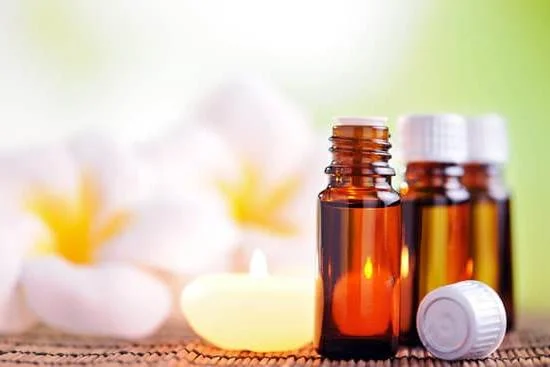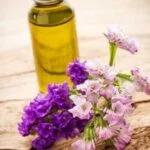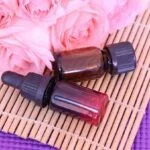Anxiety is a common mental health concern that affects countless individuals around the world. It can manifest as overwhelming worry, fear, or unease, often causing significant distress and impairment in daily life. However, finding effective methods to manage anxiety is essential for promoting mental well-being. In recent years, there has been growing interest in alternative therapies such as aromatherapy as potential tools for anxiety relief.
In this article, we will delve into the topic of aromatherapy and its potential benefits in alleviating anxiety. Aromatherapy, often described as the therapeutic use of essential oils derived from plants, has been used for centuries to promote physical and emotional well-being. By exploring the science behind aromatherapy and its interaction with the brain and nervous system, we can gain a deeper understanding of how it may impact anxiety.
Understanding anxiety itself is crucial to comprehending how aromatherapy can be beneficial. We will discuss common symptoms of anxiety, its causes, and its connection to mental health. By examining the research and evidence supporting the use of aromatherapy for anxiety relief, we can evaluate its effectiveness and explore recommended essential oils that may be helpful in managing anxious feelings.
Through this comprehensive guide on using aromatherapy for anxiety relief, we aim to provide practical knowledge on different methods and techniques for incorporating it into your daily routine. Additionally, we will outline important tips and precautions to ensure safe and effective usage of essential oils. Finally, we will explore how aromatherapy can integrate with other anxiety management techniques in a holistic approach.
As you journey through this article, you will also encounter success stories of individuals who have found relief from their anxieties through the use of aromatherapy. These testimonials highlight the promising potential of this alternative therapy in addressing anxiety and enhancing overall mental well-being.
By delving into these topics thoroughly and providing insights based on research and personal experiences, we hope to offer valuable information on using aromatherapy as a potential tool for anxiety management.
What is Aromatherapy
Aromatherapy, as its name suggests, is a holistic healing practice that uses essential oils to promote physical and emotional well-being. It involves the use of aromatic plant extracts, also known as essential oils, to enhance psychological and physical health. These concentrated oils are derived from various parts of plants such as flowers, leaves, stems, and roots. Aromatherapy has been used for centuries across different cultures for its therapeutic benefits.
Exploring the Basics of Aromatherapy
At its core, aromatherapy works on the principle that when we inhale or apply essential oils to our skin, their molecules interact with receptors in our olfactory system or are absorbed into the bloodstream. This interaction triggers responses in the brain and supports various bodily functions.
There are different methods through which aromatherapy can be practiced. Inhalation is one of the most common techniques and involves inhaling essential oils directly or using diffusers to disperse their fragrance throughout a room. Another popular method is applying diluted essential oils topically through massage or in bath water.
Therapeutic Benefits of Aromatherapy
Aromatherapy offers a wide range of therapeutic benefits that can positively impact mental health and well-being. Many essential oils possess properties that have been shown to reduce stress levels, calm anxiety symptoms, promote relaxation, improve sleep quality, uplift mood, and boost overall emotional wellness.
Additionally, aromatherapy can help relieve tension headaches, support immune function, alleviate respiratory issues like coughs and congestion, soothe muscle soreness or inflammation through topical application, aid digestion and gut health when ingested responsibly under professional guidance.
The various methods used in aromatherapy allow individuals to personalize their experience based on their preferences and specific needs. Whether it’s incorporating aromatherapy into daily self-care routines or using it as part of a broader therapeutic approach for managing anxiety or other mental health conditions, the versatility of aromatherapy makes it well-suited for individuals seeking natural and holistic alternatives for their well-being.
The Science Behind Aromatherapy
Aromatherapy has been used for centuries as a therapeutic practice to promote relaxation, reduce stress, and improve overall well-being. While it is widely acknowledged that aromatherapy can have a positive effect on mental health, the science behind how essential oils interact with the brain and nervous system is still being explored.
Neurotransmitters and Aromatherapy
Research suggests that certain components of essential oils have the ability to stimulate the release of neurotransmitters in the brain. Neurotransmitters are chemical messengers that play a crucial role in regulating mood, emotions, and overall mental health. For example, lavender essential oil has been found to increase levels of serotonin, a neurotransmitter known for its mood-stabilizing properties. By influencing neurotransmitter activity, aromatherapy may help regulate emotions and alleviate anxiety symptoms.
The Role of the Olfactory System
The olfactory system, responsible for our sense of smell, plays a key role in the interaction between essential oils and the brain. When we inhale an aroma from essential oils, odor molecules enter our nasal cavity where they come into contact with specialized receptors called olfactory receptors.
These receptors send signals to the limbic system, the area of the brain involved in emotional responses and memory formation. This direct connection between scent and emotions explains why certain aromas can evoke specific feelings or memories.
Psychological Association between Scent and Memory
In addition to stimulating neurotransmitters through inhalation, there is growing evidence that aromatherapy can also elicit psychological associations between scent and memory. This phenomenon is known as associative learning or classical conditioning. By pairing a specific aroma with positive experiences or relaxation techniques over time, individuals can create an association between that scent and a state of calmness or relaxation. This conditioned response may be activated simply by encountering that particular aroma again in the future.
Understanding how essential oils interact with the brain and nervous system provides valuable insight into the potential therapeutic benefits of aromatherapy for anxiety relief. By influencing neurotransmitters, engaging the olfactory system, and facilitating psychological associations, aromatherapy has the potential to positively impact mental health and enhance overall well-being. However, more research is needed to fully understand the complex mechanisms at play in order to advance its application in anxiety management.
Understanding Anxiety
According to the Anxiety and Depression Association of America (ADAA), anxiety disorders are the most common mental illnesses in the United States, affecting around 40 million adults each year. It is important to understand anxiety and its impact on mental health in order to effectively address and manage it.
Anxiety can manifest itself in various ways, both mentally and physically. Some common symptoms of anxiety include excessive worrying, restlessness, irritability, difficulty concentrating, muscle tension, and sleep disturbances. These symptoms can significantly interfere with daily activities and lead to a decreased quality of life.
There are several factors that contribute to the development of anxiety disorders. These include genetics, brain chemistry imbalances, traumatic experiences, chronic medical conditions, substance abuse, and even certain medications. Additionally, individuals with a family history of anxiety or other mental health disorders may have a higher risk of developing anxiety themselves.
It is crucial to recognize that anxiety is not simply feeling worried or stressed from time to time; it is a serious mental health condition that requires proper attention and treatment. Anxiety disorders can be debilitating if left untreated, affecting all aspects of a person’s life including work performance, relationships, and overall well-being.
To gain a better understanding of anxiety and its connection to mental health, it is important to continue researching the topic through reputable sources such as scientific journals and professional associations specializing in mental health. By increasing our knowledge about anxiety, we can develop effective strategies for managing this condition and ultimately improve our mental well-being.
How Aromatherapy Can Help Alleviate Anxiety
Aromatherapy has gained attention as a potential natural remedy for anxiety, but does it really work? In this section, we will explore the research and evidence behind how aromatherapy can help alleviate anxiety.
Numerous studies have been conducted to determine the effectiveness of aromatherapy in reducing anxiety symptoms. These studies have shown promising results, suggesting that certain essential oils used in aromatherapy can be effective in managing anxiety.
One study published in the Journal of Clinical Psychiatry found that inhaling lavender essential oil significantly reduced anxiety levels in patients with generalized anxiety disorder (GAD). Another study published in Evidence-Based Complementary and Alternative Medicine showed that inhalation of bergamot essential oil reduced heart rate and blood pressure while significantly decreasing anxiety levels.
The calming effects of essential oils used in aromatherapy can be attributed to their ability to interact with the brain and nervous system. When inhaled or applied topically, the molecules of these oils stimulate olfactory receptors in the nose, which then send signals to the limbic system – the part of the brain responsible for emotions and memory.
This interaction triggers a release of neurotransmitters like serotonin and dopamine, which are known as the “feel-good” chemicals that promote relaxation and a sense of well-being.
In addition to research studies, many individuals have reported positive experiences with using aromatherapy for anxiety relief. Personal testimonials often highlight how certain scents can instantly uplift their mood or induce a state of calmness. While anecdotal evidence cannot replace scientific research, it further supports the potential benefits of aromatherapy for managing anxiety.
So if you’re struggling with anxiety, incorporating aromatherapy into your self-care routine may be worth considering. Don’t hesitate to explore different essential oils and find what works best for you.
It’s important to note that aromatherapy should not replace professional treatment for anxiety disorders but rather be used as a supportive tool alongside other methods such as therapy or medication. As always, consult with a healthcare professional before incorporating any new practices into your anxiety management plan.
Recommended Essential Oils for Anxiety Relief
Lavender Oil
Lavender oil is a popular choice for anxiety relief due to its calming and soothing properties. Research has shown that lavender oil can help reduce anxiety levels by promoting relaxation and improving sleep quality. It has also been found to have a positive impact on mood, helping to alleviate symptoms of depression often associated with anxiety disorders.
Chamomile Oil
Chamomile oil is another essential oil known for its calming effects on both the mind and body. It contains compounds that possess anti-anxiety and antidepressant properties, making it an excellent choice for managing anxiety symptoms. In addition to reducing feelings of stress and tension, chamomile oil can also aid in improving sleep quality, helping individuals with anxiety get much-needed rest.
Bergamot Oil
Bergamot oil is derived from the peel of bergamot oranges and is well-known for its uplifting and mood-enhancing qualities. It can help relieve anxiety by promoting relaxation, reducing feelings of agitation, and inducing a sense of calmness. Bergamot oil is often used in aromatherapy blends targeting anxiety and depression due to its ability to uplift the spirit and promote a positive mindset.
Frankincense Oil
Frankincense oil has been used for centuries in traditional medicine practices for its various therapeutic benefits, including its potential to alleviate anxiety symptoms. It possesses sedative properties, making it an effective essential oil for promoting relaxation and reducing feelings of anxiousness. Frankincense oil can also aid in grounding the mind during times of stress or emotional turmoil.
Ylang Ylang Oil
Ylang ylang oil is derived from the flowers of the Cananga odorata tree and is commonly used in aromatherapy for its ability to promote relaxation and balance emotions. It can help relieve anxiety symptoms by reducing stress, tension, and nervousness. Ylang ylang oil is especially beneficial for individuals experiencing panic attacks or high levels of anxiety, as it has a calming effect on both the mind and body.
It’s important to note that essential oils should be used with caution and in moderation. Some individuals may have allergies or sensitivities to certain oils, so it’s recommended to perform a patch test before using them topically or inhaling them. Additionally, it’s always advisable to consult with a healthcare professional before incorporating aromatherapy into your anxiety management routine, especially if you have any existing medical conditions or are taking medications.
Practical Application of Aromatherapy
Aromatherapy offers a variety of methods and techniques that can be used to effectively manage anxiety. These techniques involve the use of essential oils in different ways to promote relaxation, calmness, and overall well-being. Here are some popular methods for incorporating aromatherapy into your anxiety management routine:
- Inhalation: This is one of the most common ways to use essential oils for anxiety relief. Simply add a few drops of your chosen essential oil to a diffuser or a bowl of hot water. Inhale the aroma deeply and allow it to calm your mind and body. You can also create a personal inhaler by adding essential oil to a cotton pad or tissue and inhaling as needed throughout the day.
- Massage: Aromatherapy massage combines the benefits of touch therapy with the soothing effects of essential oils. Dilute your chosen essential oil in a carrier oil, such as jojoba or sweet almond oil, and apply it to your skin through gentle massage. The combination of physical touch and aromatic scents can help relax tense muscles, reduce stress, and promote emotional balance.
- Bathing: Taking a warm bath infused with essential oils is an excellent way to unwind after a long day and ease symptoms of anxiety. Add a few drops of your preferred essential oil to your bathwater along with Epsom salts for added relaxation. Soak in the bath for at least 20 minutes while focusing on deep breathing and allowing the scent of the oils to envelop you.
- Topical application: Applying diluted essential oils directly onto specific areas of tension can provide targeted relief from anxiety symptoms. For instance, you can mix a drop or two of lavender oil with a carrier oil like coconut oil or shea butter and massage it onto your temples or wrists whenever you feel anxious.
It’s important to note that everyone’s response to aromatherapy may vary, and it may take some experimentation to find the methods that work best for you. Additionally, when using essential oils topically or internally, be sure to dilute them properly and follow safety guidelines. Consulting with a qualified aromatherapist can provide valuable guidance on the appropriate application methods and dosages for your specific needs.
Incorporating various practical applications of aromatherapy into your anxiety management routine can enhance its effectiveness, providing you with a holistic approach to address anxiety symptoms and improve your overall mental well-being.
Tips and Precautions
Aromatherapy can be an effective tool for managing anxiety, but it is important to use it safely and effectively. Here are some tips and precautions to keep in mind when using aromatherapy for anxiety relief:
- Dilution: Essential oils are highly concentrated substances and should always be diluted before use. To dilute an essential oil, mix a few drops with a carrier oil such as coconut oil or almond oil. This helps to prevent skin irritation or sensitization.
- Patch Test: Before applying any essential oil topically, it is recommended to perform a patch test on a small area of skin first. This helps to ensure that you do not have an adverse reaction to the oil.
- Inhalation Methods: Inhalation is one of the most common ways to use aromatherapy for anxiety. You can inhale essential oils through steam inhalation, using a diffuser, or simply by adding a few drops of oil to a tissue or cloth and sniffing it periodically throughout the day.
- Avoid Oral Ingestion: While some essential oils can be used internally under proper supervision, it is generally recommended to avoid ingesting essential oils without guidance from a qualified professional.
- Purity and Quality: It is important to choose high-quality essential oils that are pure and free from synthetic additives or contaminants. Look for oils that are labeled as 100% pure therapeutic grade.
- Consider Sensitivities: Some individuals may have allergies or sensitivities to certain essential oils, so it is important to be mindful of this when selecting oils for your aromatherapy practice.
- Pregnancy and Children: Certain essential oils are not safe for use during pregnancy or with young children. Always consult with a healthcare professional before using aromatherapy if you are pregnant or if you plan on using it with children.
By following these tips and precautions, you can safely and effectively incorporate aromatherapy into your anxiety management routine. However, it is important to note that aromatherapy should not be used as a substitute for professional mental health treatment. It can be used as a complementary therapy to support overall well-being and relaxation.
Integrating Aromatherapy with Other Anxiety Management Techniques
When it comes to managing anxiety, taking a holistic approach can often yield the best results. Integrating aromatherapy with other anxiety management techniques can provide a comprehensive and well-rounded approach to addressing this condition. By combining the therapeutic benefits of essential oils with other practices, individuals can optimize their chances of finding relief from anxiety and enhancing their overall mental well-being.
One popular technique that can be integrated with aromatherapy is meditation. Meditation is a mindfulness practice that involves focusing one’s attention on the present moment and cultivating a sense of calm and relaxation. When combined with aromatherapy, the soothing scents of essential oils can help create an environment conducive to meditation, deepening the relaxation response and promoting a greater sense of tranquility.
Another effective technique that complements aromatherapy is exercise. Physical activity has been shown to have numerous mental health benefits, including reducing symptoms of anxiety. When combined with the use of essential oils, exercise becomes even more powerful in relieving anxiety. Engaging in activities such as yoga or tai chi while diffusing calming essential oils like lavender or chamomile can enhance the mind-body connection and promote a state of inner calmness.
Lastly, cognitive-behavioral therapy (CBT) pairs well with aromatherapy in managing anxiety. CBT is a psychotherapy approach that helps individuals identify and change negative thought patterns and behaviors associated with anxiety. By incorporating aromatherapy into CBT sessions, individuals can create a soothing atmosphere that promotes relaxation during therapy sessions. In addition, using specific essential oils like bergamot or lemon, which are known for their uplifting properties, during CBT exercises can enhance mood and facilitate greater engagement in the therapeutic process.
Overall, integrating aromatherapy with other anxiety management techniques offers a holistic approach that addresses multiple aspects of mental health simultaneously. By combining practices such as meditation, exercise, and cognitive-behavioral therapy with the use of essential oils, individuals can create a comprehensive anxiety management plan that promotes overall well-being. It is important to note that while these techniques can be beneficial, it is always recommended to consult with a healthcare professional for personalized guidance and support in managing anxiety.
Success Stories
Aromatherapy has gained popularity as a natural approach to managing anxiety and promoting mental well-being. Many individuals have found relief through the use of essential oils, experiencing decreased anxiety symptoms and improved overall mental health. In this section, we will explore some real-life success stories and testimonials from individuals who have benefited from aromatherapy in their journey to overcome anxiety.
One success story comes from Sarah, a 32-year-old woman who had been struggling with anxiety for years. She tried various techniques and therapies but found limited success until she discovered the power of aromatherapy. Sarah began using lavender essential oil in her daily routine, either by diffusing it or applying it topically.
She noticed that the scent of lavender helped calm her racing thoughts and relax her body, allowing her to feel more at ease and less anxious throughout the day. Sarah’s success with lavender essential oil motivated her to explore other oils such as chamomile and bergamot, which further contributed to her anxiety relief.
Another testimonial is from John, a 45-year-old man who had been living with generalized anxiety disorder for most of his life. He struggled with constant worry, restlessness, and trouble sleeping due to his anxiety. After researching different natural remedies, John decided to incorporate aromatherapy into his daily routine.
He discovered that inhaling frankincense essential oil helped soothe his mind and reduce the intensity of his anxiety symptoms. He also found that using an essential oil blend containing ylang-ylang, clary sage, and vetiver before bed promoted relaxation and better sleep quality.
These success stories highlight the potential benefits of aromatherapy in managing anxiety. While everyone’s experience may vary, these testimonials provide hope and encouragement for those seeking alternative ways to alleviate their anxiety symptoms. It is important to note that aromatherapy should not be considered a standalone treatment for anxiety, and individuals should consult with a healthcare professional before incorporating it into their anxiety management plan.
| Success Story | Evidence |
|---|---|
| Sarah’s Anxiety Relief with Lavender Essential Oil | Individual testimonial |
| John’s Improved Sleep Quality with Essential Oil Blend | Individual testimonial |
It is worth mentioning that individual experiences may not reflect the general outcome for everyone. Each person’s response to aromatherapy may vary based on their unique physiology and circumstances. It is also important to consider that aromatherapy is most effective when used as part of a holistic approach to managing anxiety, which may include therapy, lifestyle changes, and other evidence-based treatments.
Conclusion
In conclusion, the use of aromatherapy shows promising potential in addressing anxiety and enhancing mental well-being. The therapeutic benefits of essential oils have been explored and backed by scientific research, demonstrating their ability to interact with the brain and nervous system to alleviate anxiety symptoms. By understanding the common symptoms and causes of anxiety, individuals can tailor their aromatherapy practice to target specific concerns.
It is important to note that aromatherapy is not a one-size-fits-all solution for anxiety management. Each individual may respond differently to various essential oils, so it is crucial to experiment and find the oils that work best for personal needs. A comprehensive guide to recommended essential oils for anxiety relief can serve as a starting point for individuals looking to incorporate aromatherapy into their routine.
When utilizing aromatherapy for anxiety management, it is essential to ensure safety and effectiveness. Precautions should be taken when using essential oils, such as diluting them properly and conducting patch tests before applying them topically. Additionally, integrating aromatherapy with other anxiety management techniques can create a holistic approach that addresses both physical and mental aspects of well-being.
Real-life testimonials highlight the success stories of individuals who have found relief from anxiety through aromatherapy. These stories showcase the potential of aromatherapy as a complementary tool in managing anxiety, improving mood, reducing stress levels, and promoting relaxation.
Frequently Asked Questions
What essential oil is best for anxiety?
One of the best essential oils for anxiety is lavender. Lavender has been used for centuries to promote relaxation and reduce stress. It has a calming and soothing effect on both the mind and body, making it incredibly effective in alleviating anxiety symptoms.
The scent of lavender activates certain chemical receptors in the brain, such as GABA receptors, which help regulate anxiety levels. By inhaling lavender essential oil or using it topically, individuals can experience a sense of tranquility and serenity that can significantly ease feelings of anxiety.
What scents helps reduce anxiety?
Several scents are known to help reduce anxiety apart from essential oils like lavender. Citrus scents, such as lemon or orange, have a refreshing aroma that can uplift mood and reduce stress levels. The crispness and tanginess of these scents provide an invigorating effect on the senses, helping to alleviate anxious thoughts.
Additionally, floral scents like rose or jasmine are also believed to have calming properties and can promote emotional well-being by inducing a sense of relaxation. Finally, earthy scents like vetiver or patchouli have grounding effects that can instill feelings of stability and balance while reducing anxiety.
Can aromatherapy calm you?
Aromatherapy has long been recognized as an effective practice to calm the mind and body. The use of certain scents in aromatherapy triggers physiological responses within the body that aid in relaxation and stress reduction. When we inhale pleasant aromas, they stimulate our olfactory system (sense of smell), which is closely linked to our limbic system (responsible for emotions).
This connection allows specific scents to directly impact our mood and emotions positively. By incorporating aromatherapy techniques into daily routines through diffusers, massage oils, or even candles, individuals often experience a greater sense of calmness and wellbeing. Aromatherapy not only relaxes but also helps create a peaceful environment conducive to reducing anxiety levels naturally.

Are you looking for a natural way to improve your health and wellbeing?
If so, aromatherapy may be the answer for you.





